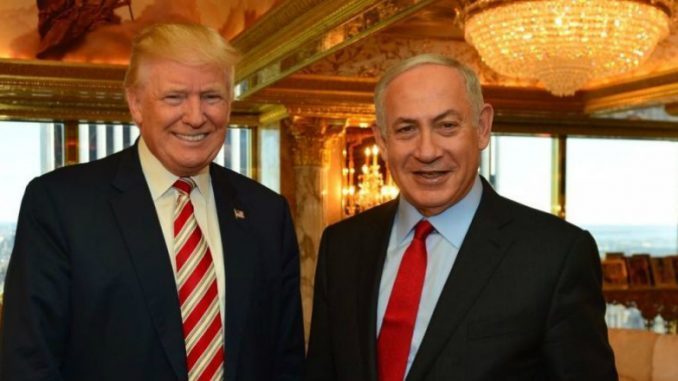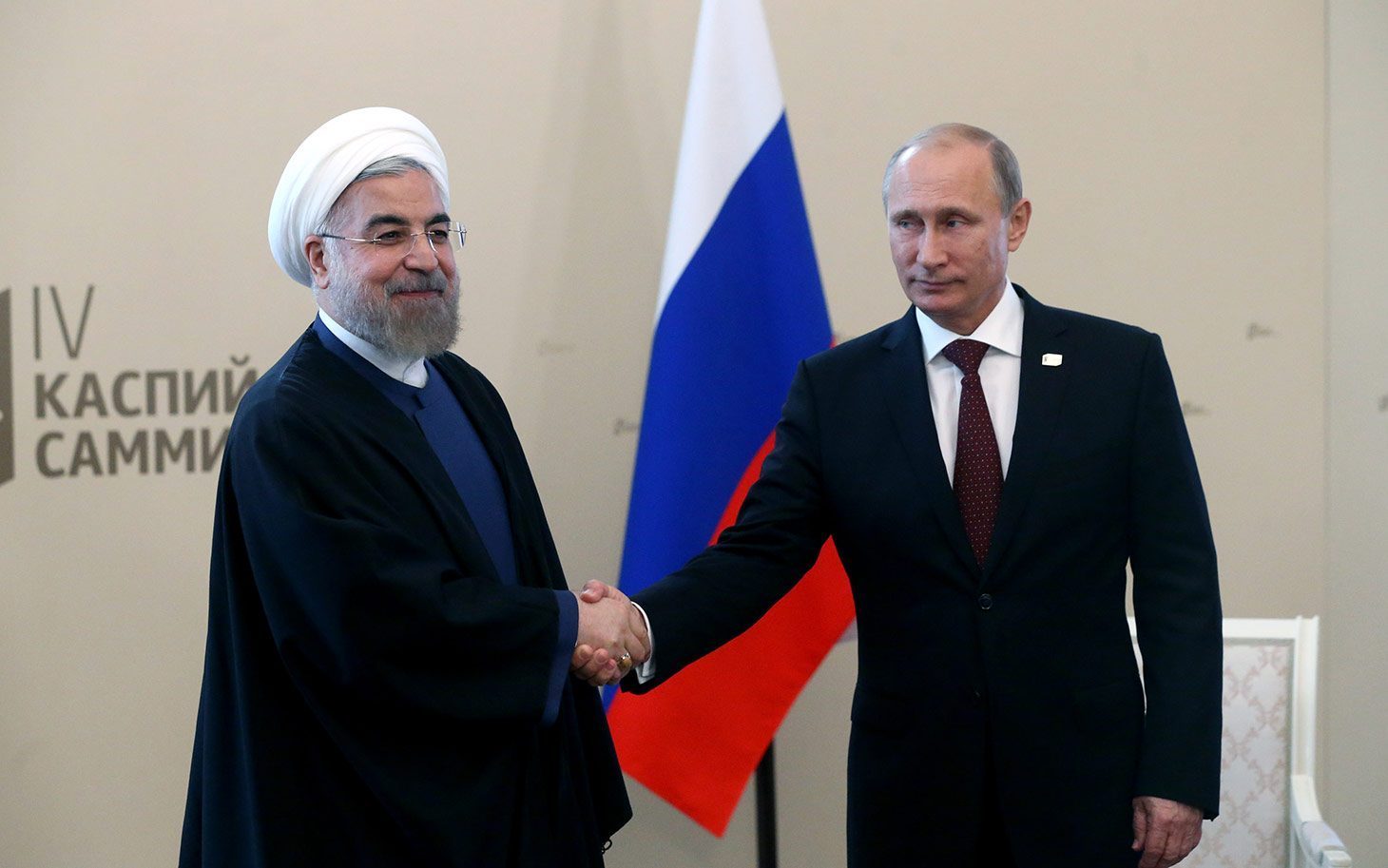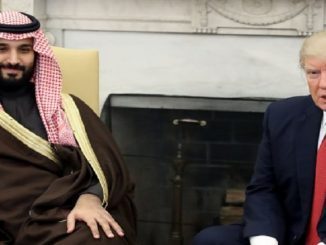
Israeli Prime Minister Benjamin Netanyahu and new U.S. President Donald Trump seem to have many goals in common, especially about Iran and putting more sanctions on its regime.
Barack Obama, The former US leader, was behind the historic Iran nuclear deal with P5+1 powers, agreed upon last year, which saw Tehran agree to amend its nuclear output in order to lift all nuclear-related economic sanctions, freeing up tens of billions of dollars in oil revenue and frozen assets.
After lifting the sanctions, Iranian president Hassan Rouhani visited Europe and made deals that worth billions of dollars. European companies started looking for investment opportunities in the growing Iranian market.
However, Trump’s election might change the whole game and threaten the development that was built in the past months.
Trump has said during his election campaign that the deal as “disastrous” and said it would be his “number one priority” to dismantle it.
These threats became clearer after Trump’s inauguration, as he signed an executive order temporarily barring thousands from seven countries in the Middle East and Africa, including Iran, from obtaining visas to travel to the United States.
In a clear challenge, a ballistic missile test was conducted by Iran last week.
After that Trump announced that “we’re officially putting Iran on notice” and “Iran is playing with fire.” In addition, he declared new sanctions against Iranian figures and economics.
In response to Trump’s sanctions, Iran launched new military drills and declared its readiness to attack the US and Israel if it senses any threat.
“The US army’s fifth fleet has occupied a part of Bahrain, and the enemy’s farthest military base is in the Indian Ocean but these points are all within the range of Iran’s missile systems and they will be razed to the ground if the enemy makes a mistake,” Iranian government official said.
“And only 7 minutes is needed for the Iranian missile to hit Tel Aviv,” he added.
Common ground
As Trump and Netanyahu prepare for their Feb. 15 meeting, focus has shifted to Iran’s ballistic missile test last week.
The missile test gave the Trump and Netanyahu – who had an often acrimonious relationship with Trump’s Democratic predecessor Barack Obama – an early chance to show they are on the same page in seeking to restrain Iranian military ambitions.
Two years ago, Netanyahu infuriated the Obama White House by addressing the U.S. Congress to rally hawkish opposition to a budding Iran pact he condemned as a “historic mistake” that should be torn up.
Netanyahu wrote on Facebook last week: “At my upcoming meeting with President Trump in Washington, I intend to raise the renewal of sanctions against Iran in this context and in other contexts. Iranian aggression must not go unanswered.”
In London for talks with British Prime Minister Theresa May on Monday, Netanyahu said “responsible” nations should follow Trump’s imposition of new sanctions as Iran remained a deadly menace to Israel and “threatens the world”.
But he stopped short of any call to cancel the nuclear accord. Israeli officials privately acknowledged that he would not advocate ripping up a deal that has been emphatically reaffirmed by the other big power signatories – Britain, France, Germany, Russia and China – since Trump’s election victory.
They may seek to tighten the enforcement of the nuclear deal and to press Iran into renegotiating key provisions.
Options under consideration, they say, would include wider scrutiny of Iran’s compliance by the International Atomic Energy Agency, the U.N. nuclear watchdog, including access to Iranian military sites, and seeking to remove “sunset” terms that allow some curbs on Iranian nuclear activity to start expiring in 10 years and lift other limits after 15 years.
A more strict deal
Some foreign policy experts say U.S. efforts to tighten the screws on Iran could seek to goad it into ditching the nuclear accord in hopes that Tehran – and not Washington – would then have to shoulder international blame for its collapse.
According to Israel’s Haaretz newspaper, an Israeli intelligence assessment recently presented to Netanyahu said revoking the pact would be an error, causing a chasm between Washington and other signatories like Russia and China.
Amos Yadlin, former head of Israeli military intelligence, said there were many areas outside the deal where pressure could be applied on Iran to change what he called its negative behavior of “subversiveness, supporting terrorism”.
But beyond new sanctions and sharpened rhetoric, analysts say, it is unclear how far Trump could go. Arguments for restraint would include the risk of military escalation in the Gulf, out of which 40 percent of the world’s seaborne crude oil is shipped, and strong European support for the nuclear deal.
Though the new U.S. strategy is in the early stages of development, the Trump administration, the sources say, is considering a range of measures, including seeking “zero tolerance” for any Iranian violations.
Trump’s aides accused the Obama administration of turning a blind eye to some alleged Iranian infractions to avoid anything that would undermine confidence in the integrity of the deal. Obama administration officials denied being “soft” on Iran.
Other U.S. strategy options, the sources say, include sanctioning Iranian industries that aid missile development and designating as a terrorist group the Revolutionary Guards, accused by U.S. officials of fuelling Middle East proxy wars. That designation could also dissuade foreign investment in Iran because the Guards oversee a sprawling business empire there.
Having more defenses to neutralize Iran’s threat
This meeting comes amid new calls from US politicians to increase the US defensive power to protect its land from Iranian and North Korean threat.
Republican Representative Mac Thornberry said that the United States should invest more in missile defense given missile testing by North Korea and Iran.
“If you look at what’s happening around the world, I would mention Iran and North Korea, the importance of missile defense is increasing,” Thornberry said at a roundtable discussion with reporters.
He said there was a need both to provide more systems and to improve missile defense technology. “Actors around the world are building missiles that are harder to stop,” he added.
Thornberry’s position was a sign of support in Congress for military spending to counter North Korea after President Donald Trump during the 2016 election campaign raised doubts about future U.S. funding to defend allies like South Korea and Japan.
Jim Mattis, Trump’s defense secretary, told South Korea last week that Washington and Seoul would stand “shoulder-to-shoulder” to face the threat from North Korea.
Both South Korea and the United States have recommitted to plans to deploy an $800 million advanced missile defense system in South Korea later this year.
More broadly, Thornberry also said he expected an end to strict limits on defense spending now that Republicans control both Congress and the White House.
The 2011 Budget Control Act imposed across-the-board cuts on government spending, and under former President Barack Obama, a Democrat, congressional Democrats were able to ward off Republican pushes to increase the defense budget without also raising spending on non-defense items such as education and medical research.
“I think we have a tremendous opportunity to do the right thing,” Thornberry said. “There’s more of the federal budget being looked at, in play, if you will, than has been the case for many years.”



